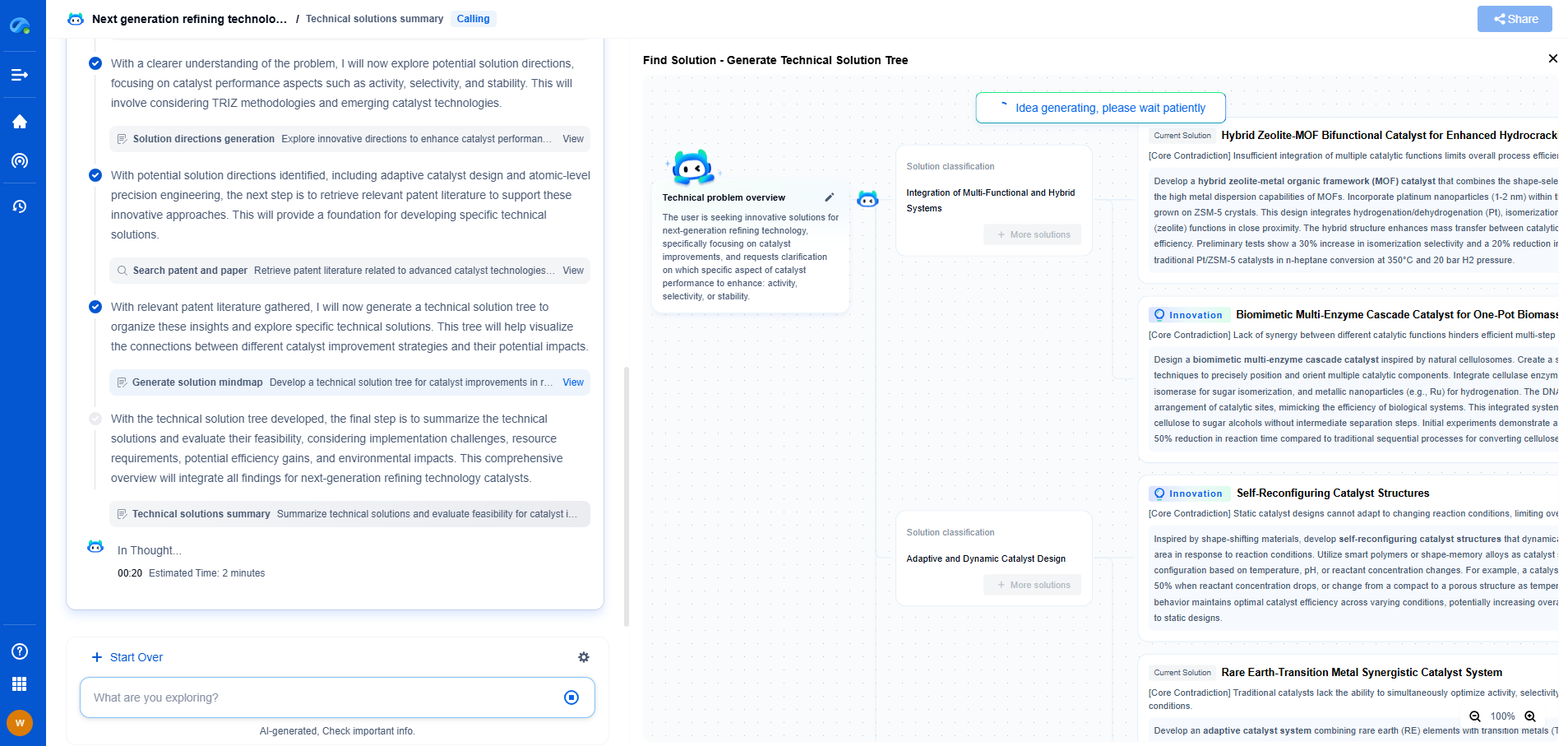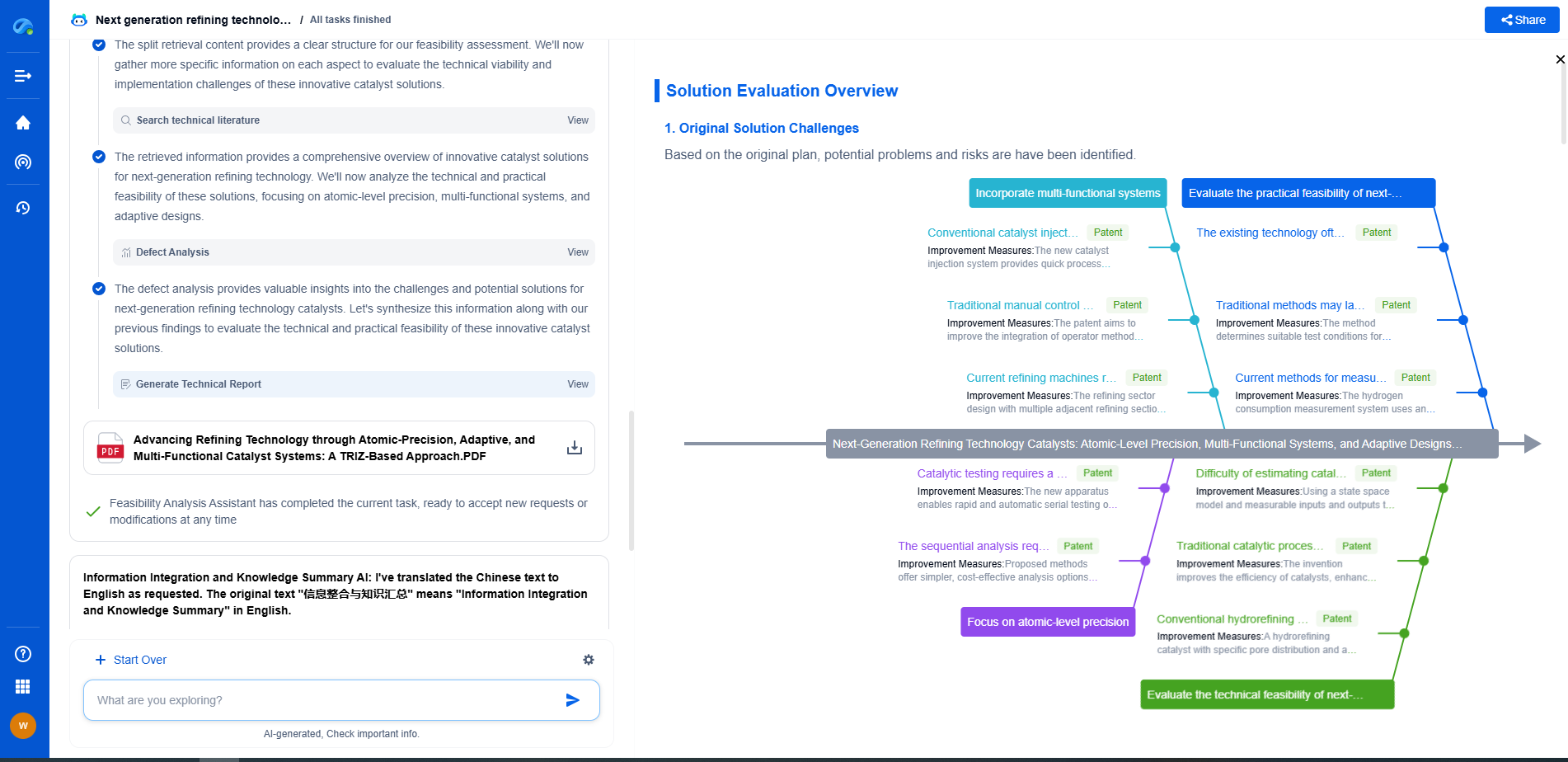UPS vs Backup Generator: Which Is Better for Emergency Power?
JUN 26, 2025 |
When it comes to ensuring continuous power during an outage, both Uninterruptible Power Supplies (UPS) and backup generators offer viable solutions. They each serve specific purposes and can be crucial depending on the situation. This article explores the pros and cons of each option to help you choose the best emergency power solution for your needs.
What is a UPS?
A UPS, or Uninterruptible Power Supply, is an electrical apparatus designed to provide emergency power to a load when the input power source fails. It differs from auxiliary power systems or standby generators in that it will provide near-instantaneous protection from power interruptions, thanks to the energy stored in batteries.
Advantages of Using a UPS
Instantaneous Response: One of the most significant advantages of a UPS is its ability to provide power instantly when an outage occurs. This instant response is crucial for sensitive electronics and equipment that cannot afford even a brief interruption in power.
Power Quality: A UPS not only supplies power during an outage but also ensures that the power supplied is clean and free from fluctuations. This aspect is particularly important for sensitive devices prone to damage from inconsistent power quality.
Noise-Free Operation: Unlike generators, a UPS operates silently, making it ideal for indoor use or environments where noise is a concern.
Limitations of a UPS
Limited Runtime: A UPS is generally designed for short-term power support, often only lasting minutes to an hour, depending on the unit and the load it supports. This limitation makes it unsuitable for prolonged outages.
High Initial Cost: While a UPS offers excellent features for short-term power needs, it can be costly, especially for units with higher capacities.
Backup Generators: An Overview
Backup generators are devices that convert mechanical energy into electrical energy, typically using fuel such as gasoline, diesel, or natural gas. They are designed to power your home or business when there is a power failure.
Benefits of Using a Backup Generator
Extended Power Supply: Unlike a UPS, a backup generator can provide power for extended periods, as long as it has sufficient fuel. This capability makes it ideal for prolonged outages.
High Power Capacity: Backup generators are better suited for powering large appliances and entire circuits, as they can supply significant amounts of power compared to most UPS units.
Cost-Effective for Long-term Use: Over longer periods and for higher power requirements, backup generators tend to be more cost-effective than continuously running a UPS.
Drawbacks of Backup Generators
Delayed Start: Unlike a UPS, which provides instant power, a generator often takes a few seconds to start after a power loss. This delay can be critical for certain equipment and operations.
Maintenance and Fuel Costs: Generators require regular maintenance and a steady supply of fuel, which can add to ongoing costs and responsibilities.
Noise and Space: Generators can be noisy and, depending on their size, may require significant space for installation.
Choosing the Right Solution for You
When deciding between a UPS and a backup generator, consider your specific power requirements:
- If you need short-term, instantaneous power for critical equipment, a UPS is likely the best choice. It will protect your devices from even brief power interruptions and ensure clean power supply during outages.
- If you face frequent or prolonged power outages, especially if you're looking to power larger appliances or systems, a backup generator might be more suitable. It offers the reliability of extended operation, provided you have access to sufficient fuel.
Combining Both for Maximum Protection
For comprehensive protection, consider using both systems. A UPS can handle the immediate power needs during short outages or while waiting for the generator to start. This combination can provide uninterrupted power and peace of mind, ensuring both short-term and long-term power stability.
Conclusion
Both UPS systems and backup generators have their place in ensuring power reliability during emergencies. The choice ultimately comes down to your specific situation, including the duration and frequency of power outages you face, as well as your budget and capacity requirements. By understanding the strengths and limitations of each, you can make a well-informed decision that best suits your needs.
Stay Ahead in Power Systems Innovation
From intelligent microgrids and energy storage integration to dynamic load balancing and DC-DC converter optimization, the power supply systems domain is rapidly evolving to meet the demands of electrification, decarbonization, and energy resilience.
In such a high-stakes environment, how can your R&D and patent strategy keep up?
Patsnap Eureka, our intelligent AI assistant built for R&D professionals in high-tech sectors, empowers you with real-time expert-level analysis, technology roadmap exploration, and strategic mapping of core patents—all within a seamless, user-friendly interface.
👉 Experience how Patsnap Eureka can supercharge your workflow in power systems R&D and IP analysis. Request a live demo or start your trial today.
- R&D
- Intellectual Property
- Life Sciences
- Materials
- Tech Scout
- Unparalleled Data Quality
- Higher Quality Content
- 60% Fewer Hallucinations
Browse by: Latest US Patents, China's latest patents, Technical Efficacy Thesaurus, Application Domain, Technology Topic, Popular Technical Reports.
© 2025 PatSnap. All rights reserved.Legal|Privacy policy|Modern Slavery Act Transparency Statement|Sitemap|About US| Contact US: help@patsnap.com

